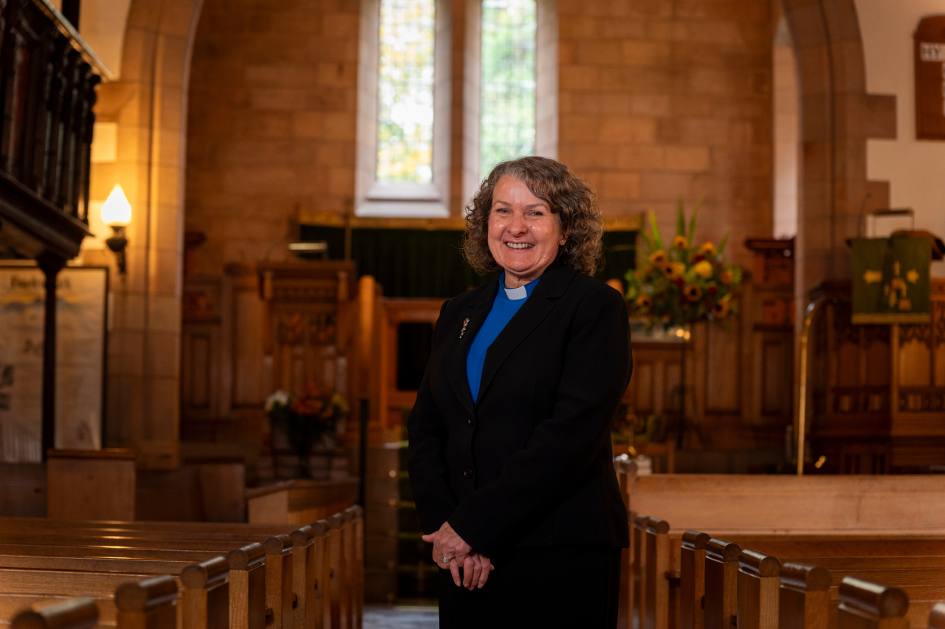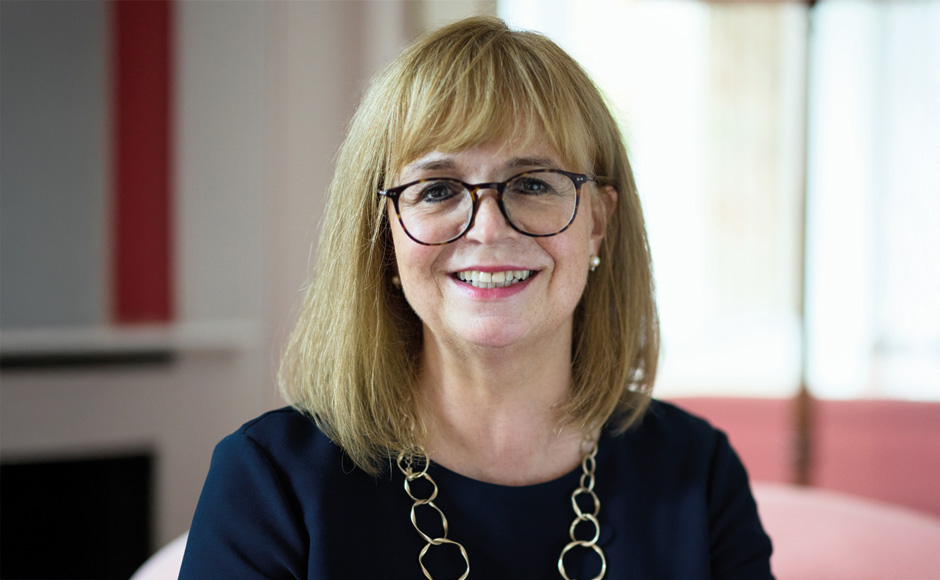General Assembly approves revised ministry numbers
Published on 26 May 2021
The General Assembly has approved a "common sense" plan to reduce the number of full-time equivalent ministry posts to 600.
Commissioners agreed a target for the Church to have no more than 60 charges vacant at any one time by the end of 2025.
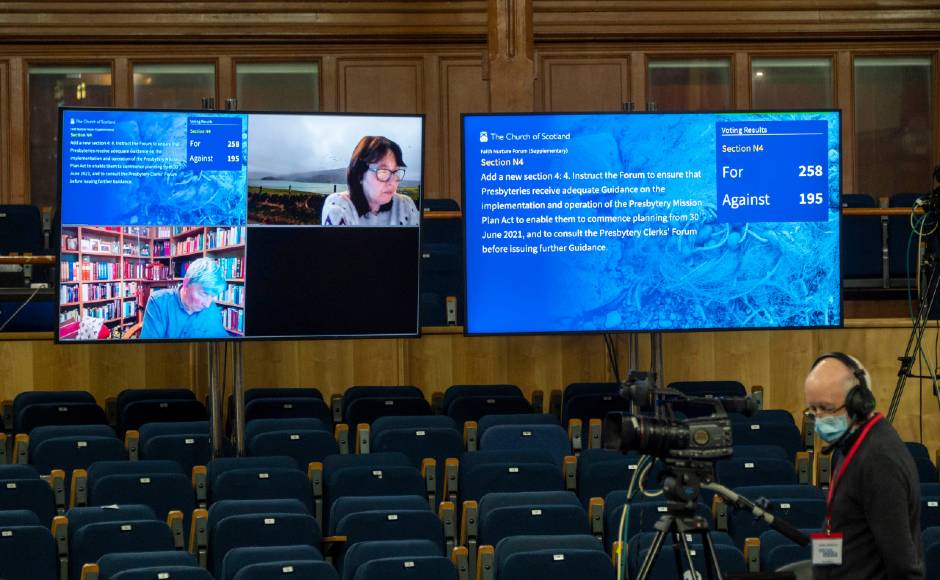
The move, which comes against a backdrop of falling membership numbers and long-standing financial challenges exacerbated by the COVID-19 pandemic, was described as the most "far-reaching and difficult planning task since 1929".
It represents a reduction of around 200 posts but takes account of the fact that 40% of all current full-time ministers of Word and Sacrament are over the age of 60 with significant numbers, perhaps as high as 60%, projected to retire over the next 10 years.
Commissioners approved figures published by the Faith Nurture Forum which shows the number of ministries posts allocated to each presbytery, weighted and based on population density, that they expected to level down to.
Each presbytery is expected to make best use of the posts to develop the Church's mission, priority area churches should not be penalised and bespoke solutions to local problems will be offered.
Guidance on implementation will be offered by the Faith Nurture Forum which is committed to engaging with presbyteries.
The reforms were brought forward by the Assembly Trustees who said the Church should be reconfigured and reshaped for mission and service around fewer buildings and fewer charges.
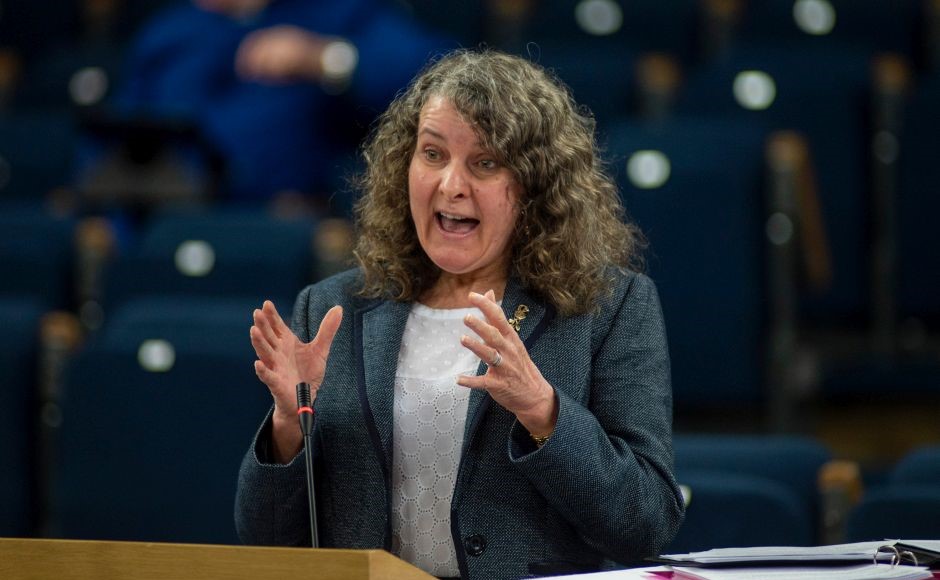
Ahead of the vote, Rev Rosie Frew, convener of the Faith Nurture Forum, laid out the stark realities facing the Kirk.
She said there were currently 693 ministers and Ministries Development Staff (MDS) in post, 151 locums and 299 vacant charges representing 402 congregations.
Mrs Frew said 36 congregations are in guardianship which meant the need for 335 interim moderators.
"We are draining the resources of our Church – people, morale, finance — just to keep this broken system going," she added.
"Without a radical treatment plan, the Church of Scotland will not survive.
"Our report offers the whole Church a chance to thrive — to lay down burdens which have been exhausting us all."
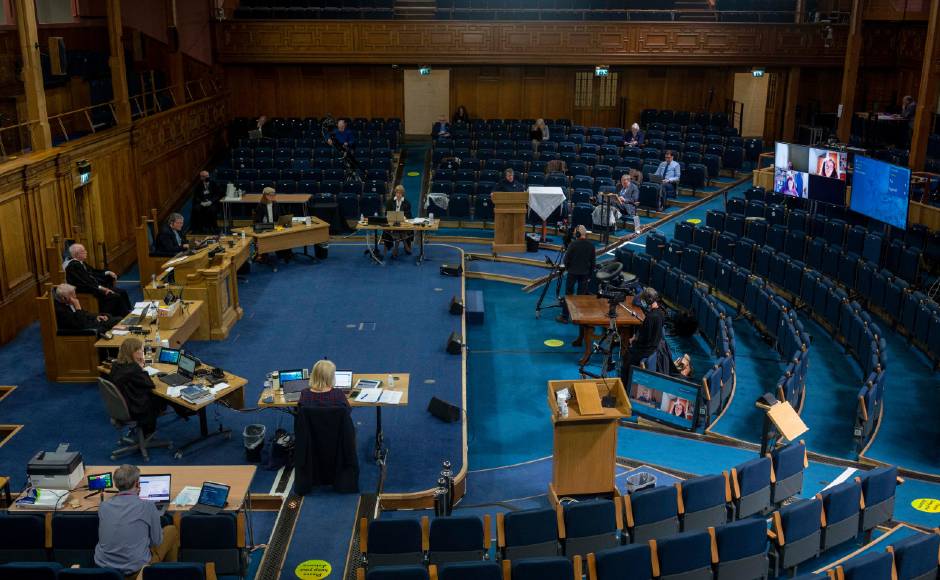
Mrs Frew, minister of Bowden and Melrose Parish Church in the Scottish Borders, said she appreciated there is "no easy or painless way forward".
"But we can choose our pain, the short, sharp pain of surgery with real prospects of recovery or the long, debilitating agony of chronic decline with no hope of things ever getting better."
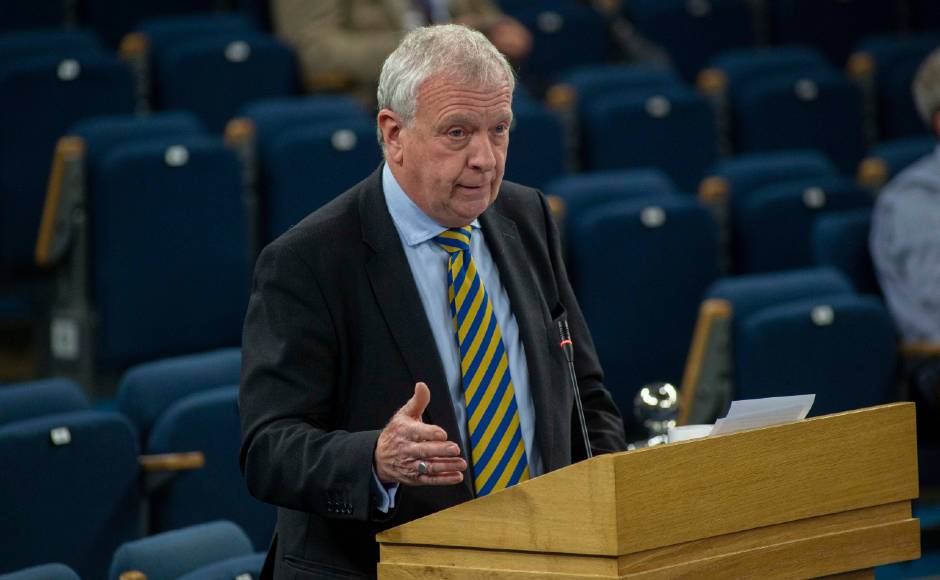
Very Rev Dr John Chalmers, convener of the Assembly Trustees, said the Church has "pushed back on the truth" of its situation for too long and urged commissioners to trust the path of renewal.
"The savings we have already made, more than £6 million in the national work of the Church, will be for nothing if we do not also bring the budget for ministry under control," he added.
"Fewer than 44% of our charges pay the whole cost of a ministry and the level of subsidy involved in supporting the other 56% of charges is, in the now foreseeable future, unsustainable.
"A Church with around 300 vacancies has neglected the business of proper planning for too long – now is the time to act with realism but to do so with hope.
"We must not approach this round of planning by culling the Church in such a way that it damages the viability of the whole eco-system which is the Church of Scotland."
